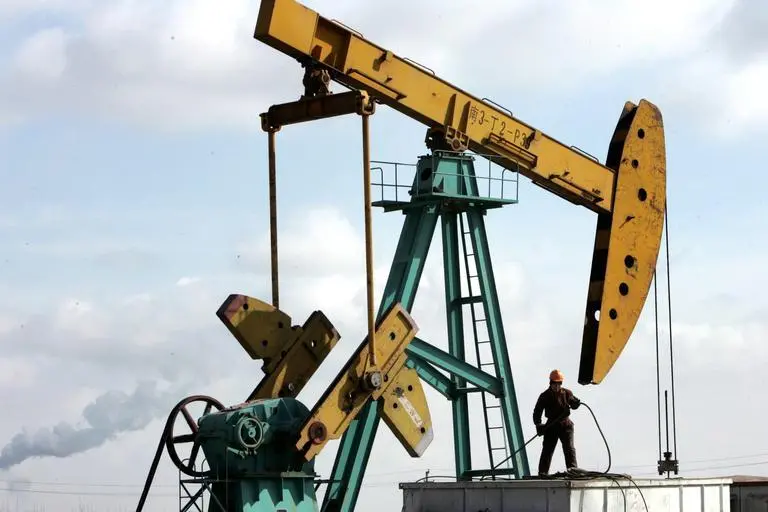PHOTO
LONDON- Oil prices fell more than 2% on Monday as scant details about the first phase of a trade deal between the United States and China undercut optimism over a U.S.-Sino thaw that had helped lift crude markets by 2% at the end of last week.
Brent crude dropped $1.52 to $58.99 a barrel by 1342 GMT, while U.S. West Texas Intermediate (WTI) crude lost $1.45 to $53.25 a barrel.
Late on Friday, the United States and China outlined the first stage of a trade deal and suspended this week's scheduled U.S. tariff hikes. But existing tariffs remain in place and officials on both sides said much more work was needed before an accord could be agreed.
"The oil market is taking a cautious stance as to what comes next given that the thorny issues of industrial policy, intellectual property rights, technology transfer among others were not addressed," BNP Paribas oil strategist Harry Tchilinguirian said.
Brent and WTI rose more than 3% last week, their first weekly increase in three.
A good portion of their gains came after the United States announced on Friday it was deploying more troops to Saudi Arabia, and after an Iranian oil tanker was attacked in the Red Sea.
"While the market waits for potential responses from the Iranians, the continued inability of geopolitics to sustain price gains is a testament to the state of concerns over demand," JBC analysts said in a note.
There are also worries that further escalation along the Syrian and Turkish border could affect output or exports from Iraq, providing more support for oil prices. Syrian troops entered a northeastern town on Monday.
The Saudi energy minister, Prince Abdulaziz bin Salman, said oil exporters taking part in a global output deal between OPEC and its allies, a grouping known as OPEC+, were showing serious commitment to the cuts.
Russian Energy Minister Alexander Novak said there were no talks underway to change the OPEC+ deal.
Kuwait's oil minister said it was too early to discuss a possible buildup in oil inventories in 2020. Khaled al-Fadhel said a price range of $50-70 per barrel would be acceptable.
The compliance of OPEC+ producers with the supply-reduction agreement was seen at above 200% in September, sources familiar with the matter said on Monday.
China showed strong demand for oil, with its September imports rising 10.8% from a year earlier as refiners ramped up output amid stable profit margins and solid demand for fuel.
(Additoinal reporting by Florence Tan and Seng Li Peng; Editing by Dale Hudson, Kirsten Donovan) ((bozorgmehr.sharafedin@thomsonreuters.com;))




















